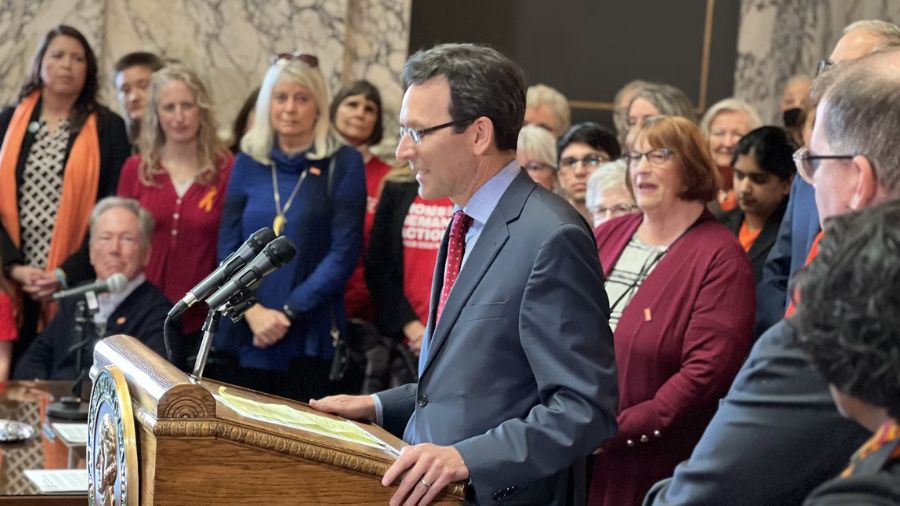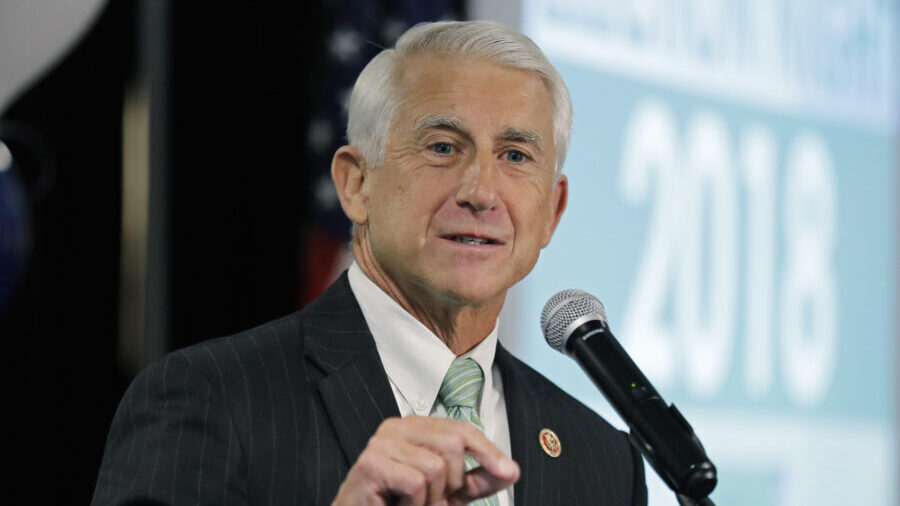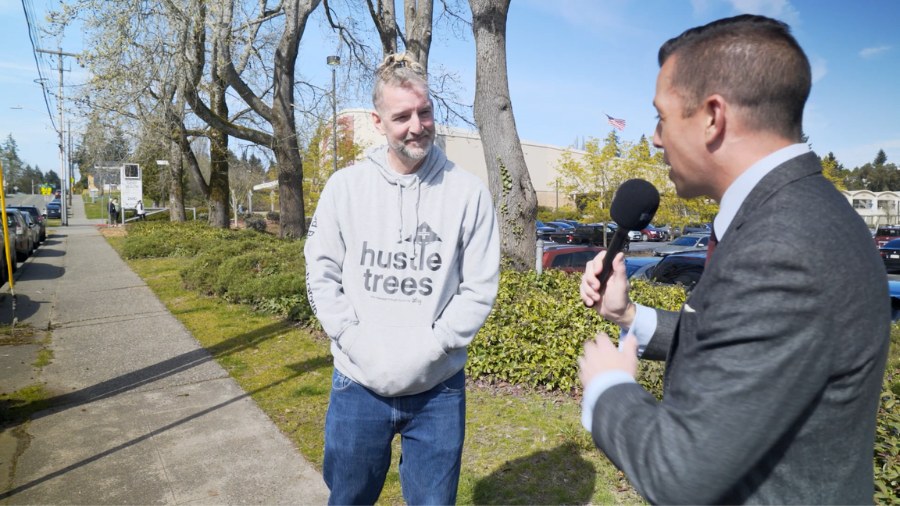Rantz: Celebrated Seattle restaurant to close, killed by rising costs and minimum wage
Oct 1, 2019, 5:58 AM | Updated: 7:48 am

(Pexels)
(Pexels)
James Beard award-winning chef Matt Dillon will close his much-beloved restaurant Sitka & Spruce at the end of the year, citing increased costs of doing business in Seattle.
A recipe for a shortage of Seattle cooks
“In order to buy great product and pay a great wage that people can live on in our city … the math just doesn’t work,” Dillon told The Seattle Times food writer Bethany Jean Clement.
“There’s gonna be a reckoning, big-time,” he continued. “I don’t think it’s gonna be pretty.”
The news came as a shock to loyal customers and former workers, like Simone Pitzka Barron.
“Dillon was doing this as good, if not better than any restaurant I’ve worked in — if he can’t do it, I’m not sure anyone who has a restaurant in the same vein will be able to pull it off,” Pitzka Barron told The Jason Rantz Show on KTTH. “He was navigating the min[imum] wage law as good as anyone. We were paid min[imum] wage plus had a tip line (tips on top). The fact that he is closing makes me scared for the rest. The law never addressed how employers were to deal with these increases. When you cut into a razor thin margin, it creates an instability.”
Dillon is hardly the only successful restaurateur to suffer the fate of doing business in progressive Seattle.
Dan Austin, who owns Peel and Press in West Seattle, says he sympathized with Dillon.
“I agree with Matt that a reckoning is coming,” Austin told The Jason Rantz Show. “Most small owners are faced with a $1.50 wage increase both in 2020 & 2021. For many small restaurants that will be around $75-150k in added cost. Many restaurants don’t make that much in profit. When you take that, and add rent increases and added costs in regulations a lot of folks don’t see, their businesses are becoming more than a not-for-profit employment agency at best. In the worst case scenario, it is a loss of your life savings.”
Popular pizza restaurant Sizzle Pie recently shut its doors in Seattle’s Capitol Hill neighborhood, citing “continually rising overhead and operating costs in Seattle.” Last year, FOX News covered a local restaurant group filing for bankruptcy, citing minimum wage costs. In that group of restaurants was Henry’s Tavern, which just closed their Bellevue and two Seattle locations over the weekend. Biscuit Bitch owner Kimmie Spice also recently sent a scathing letter to the Council.
“Every time I turn around, I’m paying a new tax for a sign permit or an awning or a table outside, B&O tax, sugar tax, a myriad of licenses, elevator permits, health permits, higher property taxes that are passed on in my triple net, etc. etc.,” Spice wrote.
Restaurants in other cities with a $15 minimum wage are also struggling. In New York City, the New York Post says “restaurants are feeling the heat from minimum wage hikes, cutting staff hours and even closing kitchens as they struggle to shoulder the extra payroll costs.” The Los Angeles Times notes a similar struggle there.
Sitka & Spruce’s closing comes as activists and bloggers defend the city’s push towards policies that make business ownership in Seattle untenable.
Working Washington, a labor-backed front-group, routinely chides business owners struggling to deal with the minimum wage hikes. And, ironically, Jean Clement previously dismissed concerns over the impact the minimum wage increase would have on restaurants.
In the comments section of her article, she also downplays the concerns, claiming in part, “there’s also a shortage of restaurant workers, such that many places must offer starting wages higher than the $15-an-hour minimum wage just to get people to come work.” One reader called her an “apologist” for her ideological position.
It was a point of conversation at the Facebook page for the Full Service Workers Alliance of Seattle (FSWAS), an advocacy fighting against policies full service workers believe will hurt businesses. They’ve been sounding the alarm since the $15 minimum wage debate took hold in Seattle. Pitzka Barron and Sean Beavers co-founded the group.
“As far as how the media addresses these issues, the majority of articles that we see written on the min wage increase are always highlighting ROC [Restaurant Opportunities Center] and the OFW [One Fair Wage] campaign,” Pitzka Barron told me. “They usually center around one or two workers that are members of ROC or union but almost never have the perspective of what we call ‘real workers’ or those of us with no union or activist affiliation.”
Amato: Understaffed Seattle restaurants don’t tell the whole story
Beavers, echoes the sentiments.
“When the $15 [minimum wage] talks took place it was all labor unions dictating the conversation,” Beavers tells the Jason Rantz Show. “They wouldn’t allow a tip credit for tipped employees. It was just a 60% increase to their labor costs for front of the house employees who don’t need it. Couple this with higher property taxes and utility hikes, a soda tax, etc. It’s a formula to put independent Full Service restaurants out of business.”
Beaver’s maintains a tip credit “where employers could pay their tipped employees less than minimum wage, provided their tips get them to at least that much per hour, businesses like Sitka & Spruce could most likely manage. There’s a reasonable way to implement that, but, the labor unions absolutely won’t have the discussion.”
When the minimum wage law was passed, I called out folks on both sides of the issue: the ones claiming it would have no impact on business were driven purely by ideology. Likewise, the folks claiming the sky was going to fall were making the claim without any data. But we’re getting data now and with many restaurants openly discussing their problems, we have some compelling anecdotal data as well.
You can believe in deeply progressive Seattle ideals while also proposing workable policies. Dillon is in a tough spot because, like others, he wants to do what’s right by his employees. But without flexibility — in a tip credit or something else — Seattle is actively making it harder to operate a restaurant here. And this city council, with Kshama Sawant and Lisa Herbold at the helm of so many of these issues, they seem more intent on passing extreme legislation to prove their progressive bona fides, than actually proposing practical solutions facing so many local businesses.
Listen to the Jason Rantz Show weekday afternoons from 3-6 p.m. on KTTH 770 AM (or HD Radio 97.3 FM HD-Channel 3). Subscribe to the podcast here.














